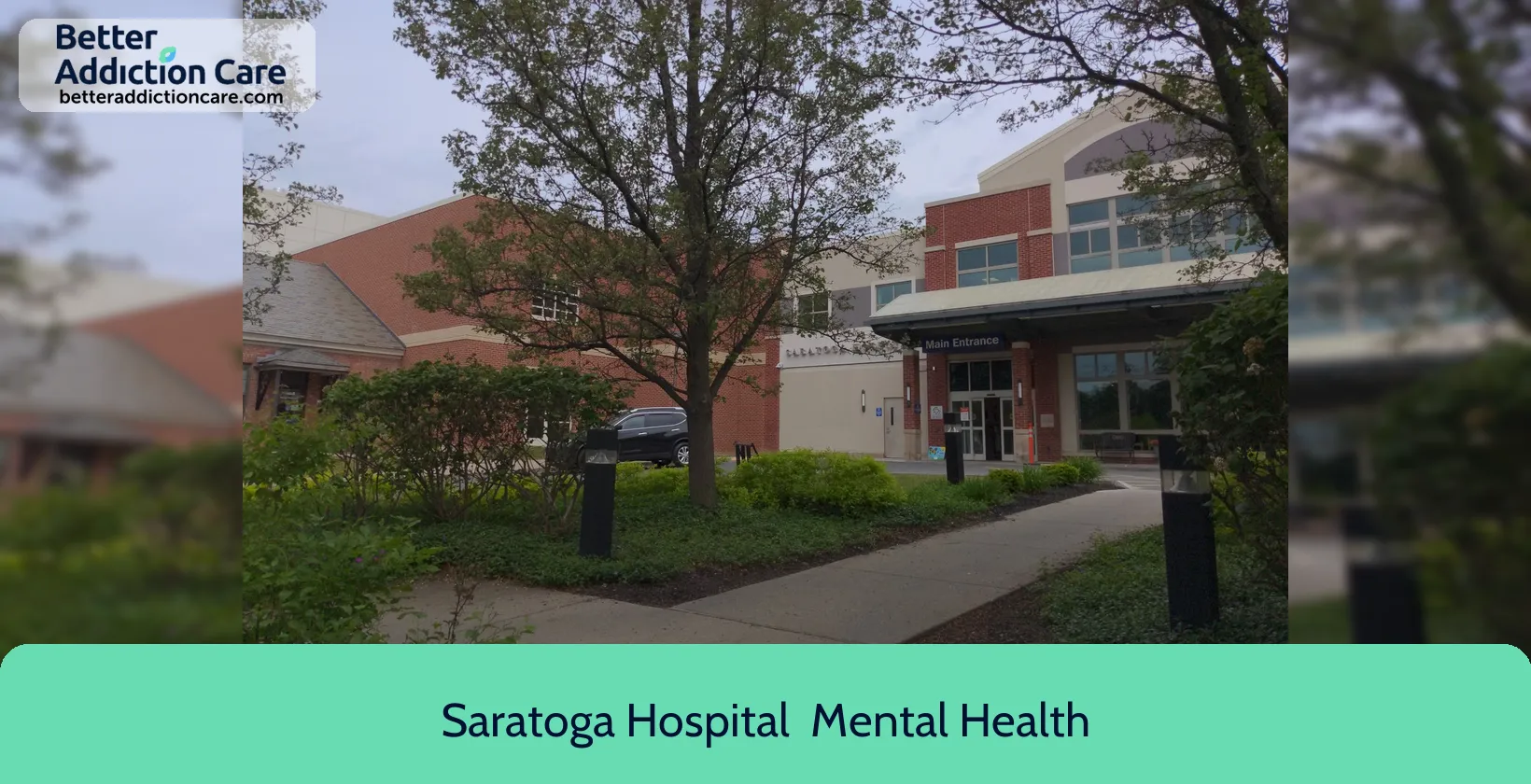Saint Peters Hospital City of Albany - Outpatient Rehabilitation

Overview
Over 5,000 individuals, many of whom are Medicaid users, get comprehensive addiction treatment each year at Saratoga Springs, New York's St. Peter's Addiction Recovery Center (SPARC). To address the needs of those battling drug misuse, SPARC provides both inpatient and outpatient treatment alternatives. Its organized recovery program is based on the 12-Step method.
Usually, the trip at SPARC starts with a detox procedure under medical supervision. In order to facilitate a smoother transition into recovery, patients get round-the-clock care during this period, which includes drugs intended to reduce cravings and relieve withdrawal symptoms. A committed case management team made up of social workers and nurses regularly monitors patients. This group makes sure that the first phase of detoxification is not only effective but also lays the groundwork for long-term rehabilitation.
Depending on the degree of their addiction and the amount of assistance required, patients are assessed after detox to decide whether they need inpatient or outpatient therapy. The essential elements of both therapy programs are the same, and they include life skills training, health education, and counseling. The degree of monitoring and flexibility is where the main differences lie. While outpatient treatment allows for more freedom, inpatient care provides 24-hour monitoring in a more restricted setting. Patients may transition from inpatient to outpatient treatment as they heal, progressively acquiring greater independence.
Every patient who is discharged from SPARC is given a thorough aftercare plan. Coordination with social services for housing and other basic necessities is a common feature of this design. For individuals governed by court orders, SPARC assists in developing a customized program to fulfill legal requirements and promote rehabilitation.
Saint Peters Hospital City of Albany - Outpatient Rehabilitation at a Glance
Payment Options
- Cash or self-payment
- Medicaid
- Medicare
- State-financed health insurance plan other than Medicaid
- Private health insurance
Assessments
- Screening for tobacco use
- Comprehensive substance use assessment
- Interim services for clients
- Screening for mental disorders
- Screening for substance use
Age Groups
- Adolescents
- Children/adolescents
- Young adults
- Adults
Ancillary Services
- Case management service
- Mental health services
- Social skills development
- Transportation assistance
Highlights About Saint Peters Hospital City of Albany - Outpatient Rehabilitation
7.57/10
With an overall rating of 7.57/10, this facility has following balanced range of services. Alcohol Rehabilitation: 8.00/10, Drug Rehab and Detox: 8.15/10, Insurance and Payments: 6.67/10, Treatment Options: 7.46/10.-
Drug Rehab and Detox 8.15
-
Alcohol Rehabilitation 8.00
-
Treatment Options 7.46
-
Insurance and Payments 6.67
Accreditations
State mental health department:
State mental health department accreditation refers to the process of evaluating and certifying the quality and standards of a state's mental health department, ensuring that it provides high-quality services and meets specific criteria for mental health care. The accreditation process is performed by a third-party organization and helps to improve the overall care and treatment of individuals with mental health conditions.
State department of health:

State Licenses, issued by government agencies, authorize rehabilitation organizations to legally operate within designated geographical areas. The specific licenses required for operation are typically determined by both the nature of the rehabilitation program provided by the facility and its physical location.
The Joint Commission:

The Joint Commission accreditation signifies that a facility has met rigorous standards of excellence in patient care, treatment, and safety. It assures individuals and healthcare professionals that the accredited facility provides high-quality, evidence-based care for addiction and mental health issues, fostering trust and confidence in their services.
SAMHSA certification for opioid treatment program (OTP):
SAMHSA's Opioid Treatment Programs (OTP) accreditation is a prestigious recognition that signifies a program's compliance with stringent standards and guidelines established by the Substance Abuse and Mental Health Services Administration (SAMHSA). This accreditation demonstrates an OTP's commitment to providing high-quality, evidence-based care for individuals struggling with opioid use disorder (OUD). It serves as a trusted symbol of accountability and excellence, assuring patients, families, and communities that the OTP offers safe, effective, and comprehensive treatment options for OUD.
Treatment At Saint Peters Hospital City of Albany - Outpatient Rehabilitation
Treatment Conditions
- Alcoholism
- Substance use treatment
Care Levels
- Outpatient
- Outpatient methadone/buprenorphine or naltrexone treatment
- Outpatient day treatment or partial hospitalization
- Intensive outpatient treatment
- Regular outpatient treatment
Treatment Modalities
- Cognitive behavioral therapy
- Telemedicine/telehealth therapy
- Substance use disorder counseling
- Trauma-related counseling
- Smoking/vaping/tobacco cessation counseling
Ancillary Services
Languages
- Sign language services for the deaf and hard of hearing
Additional Services
- Pharmacotherapies administered during treatment
- Mentoring/peer support
- Breathalyzer or blood alcohol testing
Special Programs
- Clients with co-occurring mental and substance use disorders
- Criminal justice (other than DUI/DWI)/Forensic clients
- Clients who have experienced trauma
- Clients with co-occurring pain and substance use disorders
Get Help Now
Common Questions About Saint Peters Hospital City of Albany - Outpatient Rehabilitation
Contact Information
Other Facilities in Saratoga Springs

6.65
DISCLAIMER: The facility name, logo and brand are the property and registered trademarks of Saratoga Hospital - Mental Health Unit, and are being used for identification and informational purposes only. Use of these names, logos and brands shall not imply endorsement. BetterAddictionCare.com is not affiliated with or sponsored by Saratoga Hospital - Mental Health Unit.
